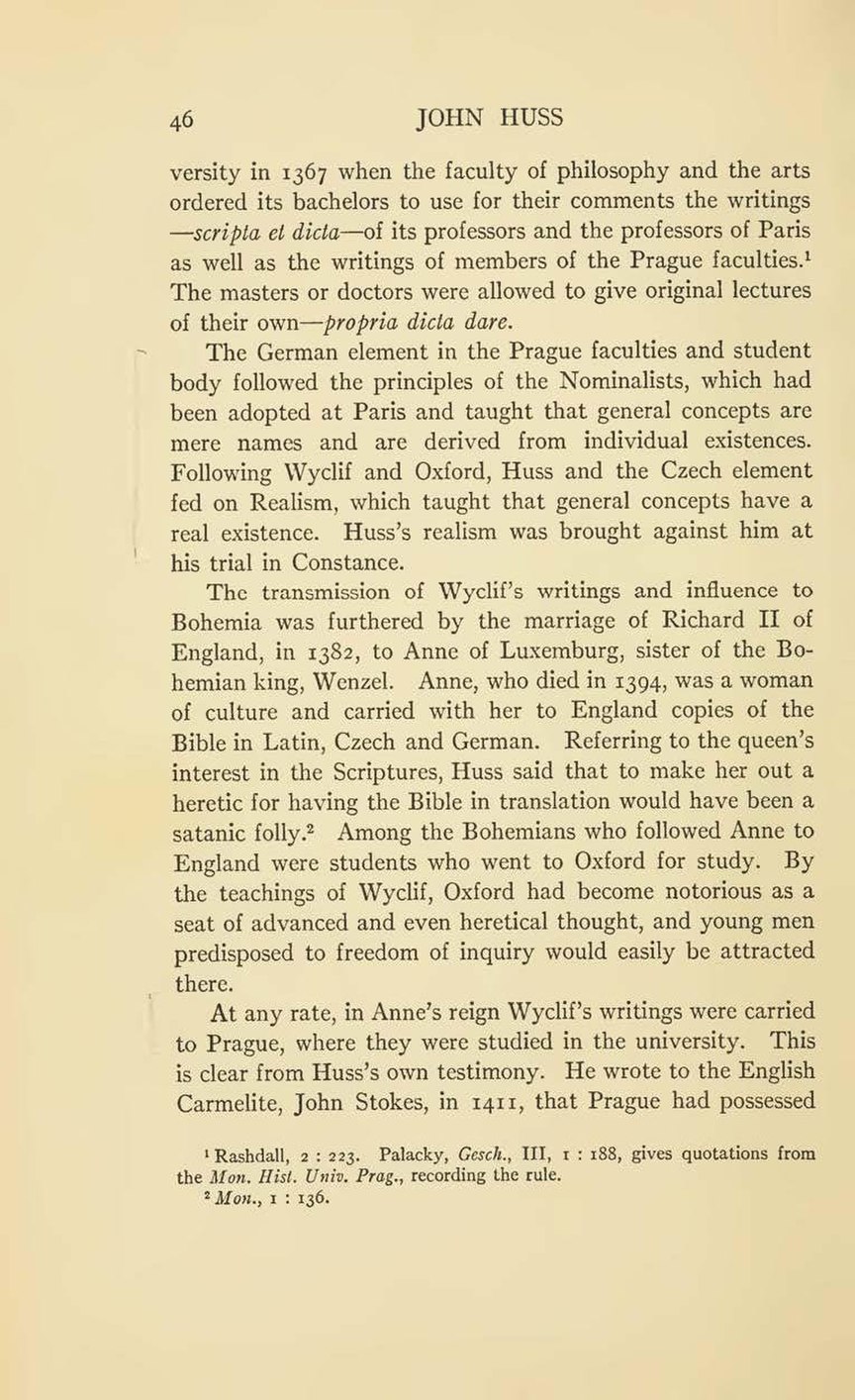versity in 1367 when the faculty of philosophy and the arts ordered its bachelors to use for their comments the writings—scripta et dicta—of its professors and the professors of Paris as well as the writings of members of the Prague faculties.[1] The masters or doctors were allowed to give original lectures of their own—propria dicta dare.
The German element in the Prague faculties and student body followed the principles of the Nominalists, which had been adopted at Paris and taught that general concepts are mere names and are derived from individual existences. Following Wyclif and Oxford, Huss and the Czech element fed on Realism, which taught that general concepts have a real existence. Huss’s realism was brought against him at his trial in Constance.
The transmission of Wyclif’s writings and influence to Bohemia was furthered by the marriage of Richard II of England, in 1382, to Anne of Luxemburg, sister of the Bohemian king, Wenzel. Anne, who died in 1394, was a woman of culture and carried with her to England copies of the Bible in Latin, Czech and German. Referring to the queen’s interest in the Scriptures, Huss said that to make her out a heretic for having the Bible in translation would have been a satanic folly.[2] Among the Bohemians who followed Anne to England were students who went to Oxford for study. By the teachings of Wyclif, Oxford had become notorious as a seat of advanced and even heretical thought, and young men predisposed to freedom of inquiry would easily be attracted there.
At any rate, in Anne’s reign Wyclif’s writings were carried to Prague, where they were studied in the university. This is clear from Huss’s own testimony. He wrote to the English Carmelite, John Stokes, in 1411, that Prague had possessed
